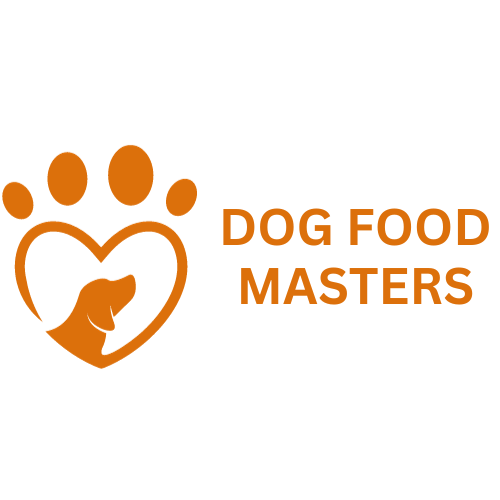Introduction to Dog Food Masters In recent years, the importance of proper nutrition for dogs has gained increasing attention among pet owners. Recognizing the critical role that diet plays in the overall health and wellness of dogs, Dog Food Masters has emerged as a go-to Amazon affiliate website dedicated to disseminating valuable information related to canine nutrition. This platform aims to provide dog owners with thorough analyses of various dog-related topics, emphasizing the significance of informed feeding choices. Dog Food Masters is committed to educating pet owners about the best nutritional practices for their dogs. By offering insightful guides, tips, and in-depth food recommendations, the site empowers individuals to make knowledgeable decisions about their pets’ diets. The mission of Dog Food Masters is rooted in the belief that a well-balanced diet is foundational to a dog’s long-term health. It focuses on presenting scientifically-backed information, expert opinions, and user experiences to enhance the understanding of dog nutrition. Visitors to Dog Food Masters can expect to find an extensive range of resources that cover everything from the nutritional requirements of different dog breeds to an analysis of the best commercially available dog foods. The content emphasizes the idea that choosing the right dog food can significantly affect a pet’s vitality, coat condition, and even behavior. It further highlights the necessity of understanding ingredient labels and nutrition profiles to help dog owners select premium products that suit their pets’ individual needs. In essence, Dog Food Masters serves as a comprehensive resource for dog owners seeking to optimize their pets’ diets. By fostering an atmosphere of learning and exploration, the site remains dedicated to promoting the health and happiness of dogs through informed eating practices. Understanding Your Dog’s Nutritional Needs To ensure optimal health and well-being, it is crucial to recognize that dogs have specific nutritional requirements. These needs vary significantly across different breeds, ages, and life stages. At the core of canine nutrition are macronutrients, which include proteins, fats, and carbohydrates, as well as essential micronutrients such as vitamins and minerals. A balanced diet incorporates all these components, fostering overall health and vitality in dogs. Proteins are essential for growth, maintenance, and repair of tissues. They are composed of amino acids, some of which must be obtained through diet, while others are synthesized by the body. High-quality protein sources such as meat, fish, and eggs should be included in a dog’s diet to facilitate muscle development and immune function. Fats provide a concentrated energy source and support various bodily functions, including skin and coat health. Omega-3 and omega-6 fatty acids, commonly found in fish oil and certain plant oils, are particularly beneficial. Carbohydrates, while not strictly necessary, can offer a valuable energy source and contribute to digestive health through dietary fiber. Fiber aids in regulating digestion, preventing obesity, and maintaining a healthy weight. Additionally, hydration is paramount; dogs should have constant access to fresh water to support overall physiological functions. As dogs age, their nutritional requirements will also change. Puppies, for instance, require higher protein and fat percentages to support rapid growth, while senior dogs may benefit from diets lower in calories but rich in fiber to aid digestion. Understanding these variations allows pet owners to tailor their dog’s diet to their specific needs, ensuring they receive all the essential nutrients necessary for a long, healthy life. Monitoring your dog’s condition and consulting a veterinarian can further help in providing a well-balanced and appropriate diet. The Science of Dog Food: Ingredients to Look For Understanding the science behind dog food is essential for pet owners aiming to provide optimal nutrition for their dogs. One of the most critical aspects to consider is the quality of ingredients used. At the core of an excellent dog food formulation is a high-quality protein source. Proteins can come from various animal sources such as chicken, beef, fish, or more exotic options like duck or lamb. These proteins provide essential amino acids that support muscle health and overall well-being. Look for dog foods that list specific protein sources rather than vague terms like “meat” or “animal by-products,” as these may denote lower-quality options. In addition to proteins, healthy fats play a significant role in a balanced dog diet. Fats, particularly omega-3 and omega-6 fatty acids, are crucial for skin and coat health, cognitive function, and joint health. Ingredients such as fish oil or chicken fat are excellent sources of these beneficial fats. It is vital to balance fats with appropriate carbohydrate sources, which can include whole grains, legumes, and vegetables. These ingredients provide energy and contribute to a dog’s overall digestive health. Vitamins and minerals are also indispensable in dog food formulations, as they support a variety of bodily functions, including immune health and bone development. Essential vitamins such as A, D, and E, along with minerals like calcium and phosphorus, should be included in quality dog foods. To make informed choices, pet owners should carefully read food labels, noting the first few ingredients listed, as these typically represent the bulk of the product. Understanding the ingredients in dog food enables owners to select options tailored to their pet’s specific health needs, ensuring a balanced and nutritious diet. Common Dog Food Myths Debunked As dog owners, it is essential to sift through the multitude of information available regarding dog food. Many prevalent myths can lead to misunderstandings about what constitutes a healthy diet for our furry companions. One of the most common misconceptions is the belief that grain-free diets are inherently better for all dogs. While some dogs may have specific grain allergies, most can digest grains without any issues. In fact, many high-quality commercial dog foods include grains as a source of essential nutrients, contributing to a balanced diet. Another myth surrounds raw feeding. Proponents of raw diets argue that they mirror a dog’s ancestral eating habits; however, this approach can pose health risks both for the dog and its owners. Raw meats can harbor harmful bacteria, such as Salmonella and E. coli, potentially leading to


